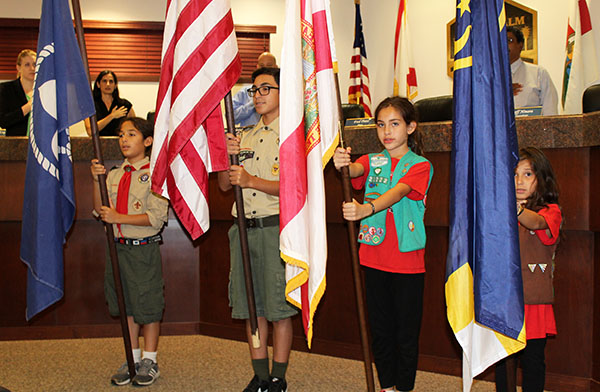
The Royal Palm Beach Village Council approved the report by the consulting firm Tindale Oliver on the village’s impact fee update Thursday, June 15.
The firm was represented by Nilgün Kamp, along with CEO Steve Tindale.
The two main areas that were seeing updates under the impact fees were recreation facilities and public buildings. Both impact fees had not seen updates since 1996.
“The purpose of the study is to update all the variables and meet the state requirements, and also comply with the new requirement to meet the proof of burden for public agencies,” Kamp said. “It used to be if a study was challenged or a program was challenged, the challenging party had to show that the calculations were wrong, but that was changed, and now the government has to show that their calculations are correct.”
Impact fees maintain a level of service for the village and calculate the cost of growth, she explained.
“In that sense, it’s helpful in the case of large developments, even during the times of moderate growth, and they are most needed when there is high growth and limited alternative funding,” Kamp said.
In the calculations that Tindale Oliver presented, it found that because of the stretch of time since the impact fees were updated, there is a large margin between where Royal Palm Beach is and where it should adjust its charges to.
“Because they were last updated in 1996, costs have increased since then. Funding fluctuates,” Kamp said. “Sometimes, if there is an extra revenue source, you are in better shape, but then sometimes that decreases, especially during downturns.”
There is a need to increase the impact fees because of the changes over time regarding the development of recreation facilities or public buildings.
“With government buildings, in 1996, you may have a lot fewer of them to the extent that you added more buildings and built more over that period. Your assets are more already,” Kamp said. “And then the costs of them are higher.”
The cost of construction has gone up greatly since the impact fees were last adjusted.
“That’s the real reality of the market place, which is why it is a good idea to review impact fees every… three to five years,” Mayor Fred Pinto said.
Councilman Jeff Hmara made a motion to approve the study conducted by Tindale Oliver, seconded by Councilwoman Jan Rodusky. The motion passed unanimously.
In a somewhat related matter, the council also approved an agenda item to amend its zoning code, updating recreation requirements for residential developers in the village.
It requires that developers dedicate land or pay a fee in lieu of parkland. This ensures there is a recreation area for community members in the residential development they live in within Royal Palm Beach.
Councilwoman Selena Smith made a motion to approve the amendment, seconded by Vice Mayor Richard Valuntas, which passed unanimously.
ABOVE: Members of Cub Scout Pack 222, Boy Scout Troop 222 and Girl Scout Troop 22222 help lead the Pledge of Allegiance at the June 15 Royal Palm Beach Village Council meeting.







